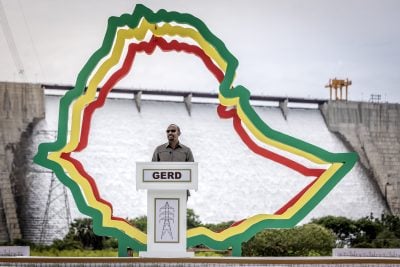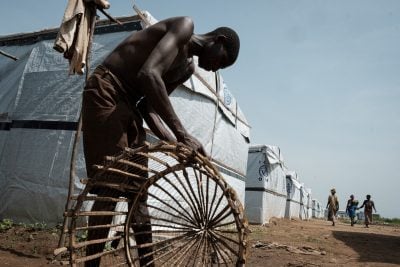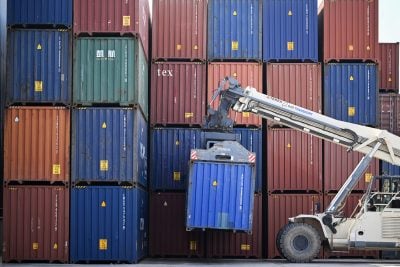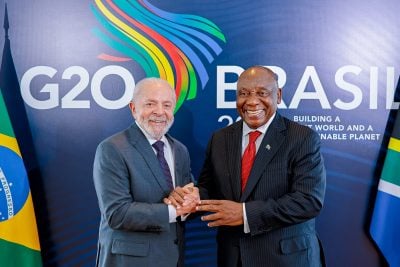Of all the multinationals active in Africa, few are as firmly established in as many markets as the Coca-Cola Company. While global majors with a more limited footprint on the continent have scaled back operations and frozen new investment plans in response to the Covid-19 pandemic, the world’s largest soft drinks company has adapted to the unprecedented disruption facing the African continent and the dozens of diverse markets that it operates in.
For Johannesburg-based Bruno Pietracci, Coca-Cola’s recently appointed president of Africa and an experienced emerging markets operator, the pandemic has challenged the company to do things differently, prompting immediate changes to working patterns and long-term decisions to transform Africa’s role in the corporation.
In recent months, the Africa unit has boosted the leadership team, made plans to sell its stake in a major bottling partner, and redefined its relationship to the Atlanta HQ, all while attempting to supply an ever-evolving portfolio of brands to new and existing consumers through a period of unparalleled global disruption.
“The pandemic has hit Africa as it has hit the whole world and challenged us to do things differently,” says Pietracci, a Brazilian whose previous stints include president of the Africa and Middle East business unit and president of its South and East Africa business unit.
“We moved more than 500 people from physical offices to remote working overnight – we were able in probably a week’s time to start producing labels for packages for Coca-Cola which included government-approved communications for safety, sanitisation of hands, social distancing, etc. We were really able to continue operating – by that I mean our supply chain, concentrate plants, warehouses, trucks – without any major interruption throughout the whole period.”
Changes in consumption
At the heart of the disruption has been a marked change in the way that Africa’s consumers buy their favourite drinks. In many countries, the restaurant, bar and entertainment trades have fallen prey to lengthy lockdowns and curfews as successive waves of the virus have taken hold, leading Africans to increasingly buy products for home consumption.
“In the past 18 months there’s a big shift from out-of-home consumption to in-home consumption. You used to go out to the cinema and now you’re probably watching something at home, or you used to go to a restaurant and now you have friends at home. Our day-to-day job is to understand those insights and shape our prices and packaging architecture, as well as our communications, to capture these occasions that are becoming more important.”
Inevitably, sales suffered in 2020. Organic revenue growth was down 13% over the year across the wider Europe, Middle East and Africa region, even though the company saw strong volume performance in West Africa, primarily led by sparkling soft drinks. Nevertheless, 2021 results so far show an encouraging bounce back. EMEA unit case volume grew 21% in the second quarter, driven by the ongoing recovery in markets where uncertainty is abating, and Nigeria has registered a particularly positive performance. EMEA net operating revenues in the second quarter were $2bn, a 67% improvement on the same period last year.
New opportunities
With adjustment to the new environment an ever-evolving challenge, the pandemic affords an opportunity to rethink the wider group structure.
“We also took this time to take actions that are more transformative to the business that I believe will ensure we emerge stronger from this pandemic, one of which is that… the Africa operating unit is responding directly to Atlanta, which gives us much more leeway and freedom. We now have a full structure to the African continent… which allows us to have a more dedicated focus to the business, to the talent, to the communities in Africa.”
At the heart of that structure is a leadership team with five franchise VPs, plus the Public Affairs and Communication VP. Pietracci says the six leaders, three of whom are women, will act as the external face of the company by leading interactions with government, media and stakeholders. The wider purpose of the structure is to ensure that Coca-Cola can adapt its continental strategy to the specific needs of regions with different demographics, economic profiles and consumer tastes. Pietracci uses the analogy of the interaction between Apple’s iPhone and its apps to explain his combination of continental and regional strategy.
“The way we’re approaching Africa is that every country should have ‘the iPhone’… but the application you download in your country or region will make your ‘iPhone’ customised to the need of the region. So more specfically, everyone needs to develop a plan to accelerate cold drink equipment, but maybe equipment in Nigeria will be different to that of Ethiopia. It may be different within the regions of Nigeria depending on the reliability of power sources.
“The same holds true for packages – in some regions they will be 200ml, in others 300ml or 250ml, depending on disposable income… We have the same strategy across the continent – the same ‘iPhone’, but the applications or solutions might be customised, and through that we hope to arrive at a sweet spot between the scalability of things and the relevance of the local touch.”
Bottling exit
One way in which the Africa unit will follow Coca-Cola’s global strategy is in plans for the company to sell a portion of its shares in bottling business Coca-Cola Beverages Africa (CCBA) via an initial public offering. Coca-Cola owns 65% of CCBA, its eighth largest bottling partner worldwide and the biggest on the African continent, serving 13 countries, mostly in the south and east.
In April, the companies announced plans for an IPO within the next 18 months dependent on a number of factors including macroeconomic conditions. Shares will be listed in Amsterdam and Johannesburg, with Amsterdam being the primary exchange. Reports suggest the company could be valued at around $6bn.
“The strategy for the Coca-Cola Company globally, and Africa is no exception, is that we would not like to be present in the longer term in the bottling business… the listing of CCBA will come naturally as part of that strategic statement. I think it’s part of our DNA and our core competence, dedicating more of our efforts to marketing, R&D and partnering with relevant local players that will do the manufacturing and distribution. This in essence has been how the company has developed across the globe and we believe it’s still our essence for the years to come.”
Exiting bottling will allow Coca-Cola to concentrate on its product mix, which comprises sparkling soft drinks but also water, juices, dairy, coffee and other products.
“In the core sparkling business we’ve just launched globally and started in the African continent a new formula of Coca-Cola Zero Sugar with a new visual identity. This is starting very well globally, and in the continent it’s one of the areas I’m particularly excited about.
“We have a very relevant presence in juices across the continent… we have a dairy company in Nigeria (Chi), which we fully acquired in 2019. Not only is it doing well in Nigeria but we’ve just started operating with those brands in Ghana.”
With countries in the developed world increasingly turning to sugar taxes to target obesity, healthier juices, dairy and coffee products offer a chance to get ahead of the trend in Africa. Nevertheless, Pietracci says the company still intends to “double down” on growth in sparkling drinks.
“I’d expect in years to come these new categories will have a high share of growth, but the truth of the matter is that in the African continent we have to do both. We still have plenty of opportunities to grow the core of the business while developing new categories of beverages.”
Environmental footprint
Another area in which the company has to pay increasing attention is its environmental footprint. As one of the world’s largest contributors of plastic waste, Coca-Cola is rethinking its relationship to waste, has set a number of targets for recycling and launched national collection schemes.
“We acknowledge that consumers are more and more concerned about the environment and we want to be part of the solution. As part of our ‘World Without Waste’ strategy, we announced a couple of years ago a plan to make 100% of our packaging recyclable globally by 2025 – and use at least 50% recycled material in our packaging by 2030; and collect and recycle a bottle or can for each one we sell by 2030. In the African continent we’re making good progress.”
Boosting in-country recycling and collection is an important part of the company’s overall plan to become more embedded in the African markets in which it operates – a strategy that also includes sourcing more ingredients locally. Covid-19 has fuelled a debate around the importance of localised supply chains, and from the sugar in its trademark product to fruit juices and dairy, it’s an area that the company is trying to become more relevant in on the continent.
“It’s interesting because from both supply chain reliability and also a recovery standpoint this could play an important role. The pandemic has hit Africa in quite a dramatic way, and to the extent to which we can be an accelerator to economic recovery, that can play an important role. Its importance has probably increased in the agenda not only of management but government and civil society as a whole.”
Want to continue reading? Subscribe today.
You've read all your free articles for this month! Subscribe now to enjoy full access to our content.
Digital Monthly
£8.00 / month
Receive full unlimited access to our articles, opinions, podcasts and more.
Digital Yearly
£70.00 / year
Our best value offer - save £26 and gain access to all of our digital content for an entire year!
 Sign in with Google
Sign in with Google 



